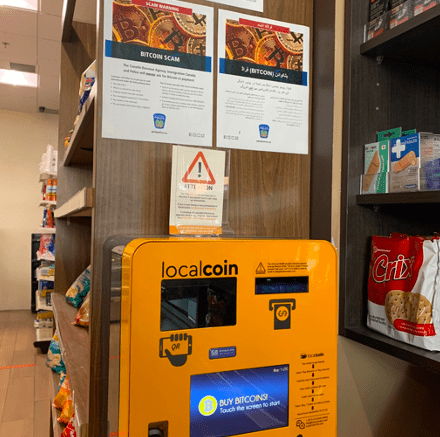A Milton college student has become the latest victim of an intricate national telephone scam involving phoney Canada Revenue Agency fraudsters.
Alonso Medina, 18, who is in the Motive Power Technician program at Centennial College in Scarborough, was cheated out of $6,000 of his OSAP money in mid-October.
“He filed a report to the police, but unfortunately, we know that it is highly unlikely that he will get this money back,” said Maria Espinoza, the teen’s mother.

According to the Canadian Anti-Fraud Centre, Canadians have made more than 40,000 reports of fraud from Jan. 1 to Aug. 31, 2020. This involves more than 19,000 victims and over $67 million in reported losses.
In Medina’s case, the first caller claimed to be from the CRA. He told Medina that his social insurance number had been compromised and had been used to open 15 credit card accounts.
The second caller claimed to be a local police officer verifying this information, urging Medina to withdraw his money and deposit it into the nearest Bitcoin ATM before his bank account would close and he’d lose all his money.
“They actually said they were a police officer, they also gave me a badge number and I don’t think they gave me their names,” said Medina. “They just gave me their badge number, that’s it.”
Caller ID spoofing
“On our web page, there are a whole bunch of scams we list that are commonly out there, and of course, there are even significantly more than we are aware of,” said Peel Regional Police Const. Danny Marttini on Thursday, in response to the incident.
The scammer had told Medina he was not allowed to tell anyone what was happening and was not to hang up.
“When he was in the gas station, he read a sign [on the ATM] that said ‘Beware of scammers’ ,” said Maria Espinoza, Alonso’s mother. “But he felt he couldn’t doubt the call, because he got confirmation from police.”
Both callers had phone numbers that looked authentic. This is known as caller ID spoofing: disguising an unknown phone number by making it appear as if it is coming from a legitimate, trusted source.
Experts say Medina was involved in an intricate two-part scam of fraud involving cryptocurrency, as well as SIN fraud, both falling under the category of extortion scams.
Lost OSAP money
The Canadian Anti-Fraud Centre released the list of top 10 frauds ranked by number of reports made from the beginning of the year to Aug. 31. The list showed that extortion is the top form of fraud against Canadians, with over 13,000 reports, 5,000 victims, and a total amount of $7.6 million reported losses.
“Even with officers [calling you], you could always call police back at the local police line and ask to be transferred over to the officer’s extension,” advised Const. Marttini.
This deception cost Medina most of the funds provided by OSAP, leaving him no money to pay for on-campus housing and tuition for next semester.
Medina deposited his money into the Bitcoin ATM located in the Pioneer gas station at 4901 Sheppard Ave. E. The scammers remained on the phone throughout the process and once he was done, they asked him to deposit $11,000 more, as a security deposit.
This is when he was certain he had been scammed.
“He came back home and I tried to calm him down and told him ‘The most important thing for me, is that you’re safe,’ ” Espinoza said Thursday.
More calls due to COVID-19
Lisanne Roy Beauchamp, a supervisor at the Canadian Anti-Fraud Centre located in North Bay, revealed that due to Canadians spending more time at home, fraudsters have increased their attempts to contact potential victims by phone.
“A correlation can be made between COVID-19 frauds and overall reporting to date in 2020,” Beauchamp said.
The family wishes to spread awareness to Canadians, especially vulnerable targets such as students, seniors, and new immigrants like themselves, in hopes of educating and protecting others from experiencing similar scams.
Medina created a fundraiser to recover some of the money he lost. The current total is at $520.
“I won’t give up about this situation,” Espinoza said.
The incident was reported to police, but the family has yet to hear back with any updates in the ongoing investigation.
“Tell your parents no matter what,” Medina said, when asked what advice he had for others. “Even if they tell you that you have to keep it a secret and you can’t tell anyone…no matter what, just tell your family.”

